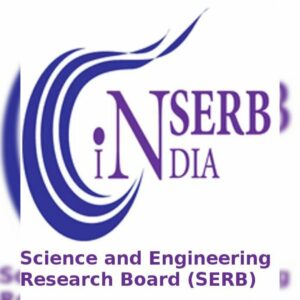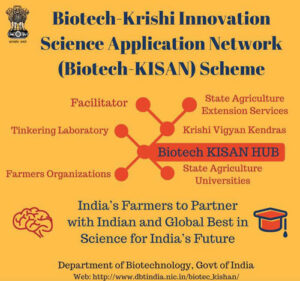Ministry of Science and Technology
National Mission on Interdisciplinary Cyber-Physical Systems (NM-ICPS)

Objective
- NM-ICPS covers entire India which includes Central Ministries, State Governments, Industry and Academia.
- The NM-ICPS is a comprehensive Mission which would address technology development, application development, human resource development & skill enhancement, entrepreneurship and start-up development in Cyber Physical System (CPS) and associated technologies.
- The Mission aims at establishment of 15 Technology Innovation Hubs (TIH), six Application Innovation Hubs (AIH) and four Technology Translation Research Parks (TTRP).
- These Hubs & TTRPs will connect to Academics, Industry, Central Ministries and State Government in developing solutions at reputed academic, R&D and other organizations across the country in a hub and spoke model.
- The Hubs & TTRPs have four focused areas along which the Mission implementation would proceed, namely:
- Technology Development,
- HRD & Skill Development,
- Innovation, Entrepreneurship & Start-ups Ecosystem Development, and
- International Collaborations.
Cyber-Physical Systems
- Cyber-physical systems integrate sensing, computation, control and networking into physical objects and infrastructure, connecting them to the Internet and to each other.
- Few Potential applications: Driverless cars that communicate securely with each other on smart roads, Sensors in the home to detect changing health conditions, improving agricultural practices and enabling scientists to address issues arising out of climate change,etc.
- Advances in cyber-physical systems will enable capability, adaptability, scalability, resiliency, safety, security and usability that will far exceed the simple embedded systems of today.
WAYU (Wind Augmentation and purify Ying Unit)
- WAYU helps in reducing ambient air pollution levels ejected by vehicles at places, which have high concentration of pollutants. WAYU can reduce PM10, PM2.5, CO, VOCs, HC emitted in the atmosphere. The cost of device is Rs.60, 000 per device with a maintenance cost of Rs.1500 per month.
Science and Engineering Research Board (SERB)’s Schemes

- Teacher Associate ship for Research Excellence (TARE): The Scheme aims to tap the latent potential of faculty working in state universities, colleges and private academic institutions who are well trained but have difficulty in pursuing their research due to varied reasons including lack of facilities, funding and guidance.
- This scheme facilitates mobility of such faculty members to carryout research in a well-established public funded institution such as IITs, IISc, IISERS and other National Institutions (NITs, CSIR, ICAR, ICMR labs, etc) and Central Universities located preferably nearer to the institution where the faculty member is working. Up to 500 TAs will be supported under this scheme.
- Overseas Visiting Doctoral Fellowship (OVDF): This scheme offers opportunities for up to 100 PhD students admitted in the Indian institutions for gaining exposure and training in overseas universities / institutions of repute and areas of importance to country for period up to 12 months during their doctoral research.
- SERB Distinguished Investigator Award (DIA): DIA has been initiated to recognize and reward Principal Investigators (PIs) of SERB/DST projects who have performed remarkably well.
- The scheme aims not only to reward the best PIs of completed projects but also to motivate the ongoing PIs to perform exceedingly well. DIA is a one-time career award devised to specifically cater to the younger scientists who have not received any other prestigious awards or fellowships.
Augmenting Writing Skills for Articulating Research (AWSAR)
- Augmenting Writing Skills for Articulating Research (AWSAR)” is an initiative that aims to disseminate Indian research stories among the masses in an easy to understand and interesting format to a common man.
- Under this initiative, PhD Scholars and Post-Doctoral Fellows (PDFs) in Science and Technology (S&T) streams would be encouraged to write at least one popular science article during the tenancy of their fellowship, and to participate in a national competition
Scientific Research Infrastructure Management and Networks (SRIMAN)
- The policy will transform scientific instruments in government labs into lucrative assets generating a steady rental income. Under the policy, the government plans to hire out to researchers all lab equipment that cost more than ₹10 lakh. This would also reduce the amount of time such expensive instruments remain idle.
- The new system, according to the policy, envisages institutions declaring on a website how often their instruments would be available for use by those outside the department or university. Those who would like to use, for example, a DNA-sequencing machine, would have to pay a fee and specify the purpose and time they would want it for.
National Biopharma Mission

- This is an Industry-Academia mission to accelerate biopharmaceutical development in India.
The following are the objectives of the Mission
- Development of products from leads that are at advanced stages in the product development lifecycle and relevant to the public health.
- Strengthening and establishing shared infrastructure facilities for both product discovery validation and manufacturing.
- Developing human capital by providing specific training to address the critical skills gaps in researchers, nascent biotech companies across the product development value chain, including in business plan development and market penetration.
- Creating and enhancing technology transfer and intellectual property management capacities and capabilities in the public and private sector.
Innovate in India (i3)
- Its a program launched under National Biopharma Mission.
- It aims to enable and nurture an ecosystem for preparing India’s technological and product development capabilities in biopharmaceutical to a level that will be globally competitive over the next decade and transform the health standards of India’s population through affordable product development.
The main focus area of the program includes
- It will specifically focus on the development of new vaccines, bio-therapeutics, diagnostics and medical devices to address the rising burden of diseases in the country.
- The programme will help deliver 6-10 new products in the next five years, create several dedicated facilities for next-generation skills, and hundreds of jobs in the process.
- It intends to collectively fill the missing link between the discovery and development and bring together private sector, Government and academia which we can call triple helix of medical innovation which can spur further development.
- The initial focus will be on Vaccines for HPV, Dengue and biosimilars for cancer, diabetics and rheumatoid arthritis and medical devices and diagnostics.
- Biotechnology Industry Research Assistance Council (BIRAC), a public-sector enterprise under the Department of Biotechnology (DBT), is the implementing agency of the mission.
Biotech-KISAN scheme

- Biotech-Krishi Innovation Science Application Network (Biotech-KISAN) is a Department of Biotechnology, Ministry of Science and Technology initiative that empowers farmers, especially women farmers. It aims to understand the problems of water, soil, seed and market faced by the farmers and provide simple solutions to them.
- The Scheme is for farmers, developed by and with farmers, it empowers women, impacts locally, connects globally, is Pan-India, has a hub-and spoke model and stimulates entrepreneurship and innovation in farmers.
The Program will provide support to three components
- The Hub: Biotech-KISAN Hub will be established in each of 15 agroclimatic zones under the leadership of a champion, who will act as a Facilitator. A strong network of top quality scientific institutions/ Krishi Vigyan Kendras (KVKs)/other Farmers’ organizations in the region and leading international institutions will be developed. Biotech-KISAN Hub will have a tinkering laboratory.
- International Training: Shortterm Training (STT) Programmes will be developed by DBT in partnership with international organisations / universities for farmers
- Partnering Institutes: to Conduct training programmes for farmers in laboratories of scientific research Institutions and for scientists in agricultural farms
- Research Projects: for additional funding.
Cattle Genomics Scheme
Objectives
- To predict breeding values of animal, using DNA level information with performance record, more accurately and identify genetic worth of animal (elite animal) at an early age.
- Genome sequencing of indigenous cattle breeds from all registered cattle breeds of India.
- To address the effect of Climate Change over Livestock and get benefit from increasing demand for animal food products.
Inspire (Innovation In Science Pursuit For Inspired Research) Scheme
- “Innovation in Science Pursuit for Inspired Research (INSPIRE)” is an innovative programme sponsored and managed by the Department of Science & Technology for attraction of talent to Science.
- The basic objective of INSPIRE is to communicate to the youth of the country the excitements of creative pursuit of science, attract talent to the study of science at an early age and thus build the required critical human resource pool for strengthening and expanding the Science & Technology system and R & D base.
- A striking feature of the programme is that it does not believe in conducting competitive exams for identification of talent at any level. It believes in and relies on the efficacy of the existing educational structure for identification of talent.
INSPIRE has three components
- (i) Scheme for Early Attraction of Talent (SEATS), (ii) Scholarship for Higher Education (SHE) and (iii) Assured Opportunity for Research Careers (AORC).
Pt Deen Dayal Upadhayay Vigyan Gram Sankul Pariyojana
- Under this program few clusters of villages in Uttarakhand will be adopted by DST and will be made self-sustainable in time bound manner through tools of S&T. The project will give emphasis to practice of agriculture, agrobased cottage industries and animal husbandry in an eco-friendly manner
Initiative to Promote Habitat Energy Efficiency (I-PHEE)
- A new national programme to improve energy performance of buildings and cities. It would support enhancement of knowledge and practice to save energy in design, construction and operation of buildings.
NIDHI (National Initiative for Development and Harnessing Innovations)
- NIDHI works towards nurturing knowledge-based and technology-driven ideas and innovations into successful start-ups. It also aims to provide technological solutions to the pressing needs of the society and create new avenues for wealth and job creation
- Components of NIDHI that support each stage of a budding start-up are:
- PRAYAS (Promoting and Accelerating Young and Aspiring Innovators & Start- ups)
- The Seed Support System which provides up to One Crore rupees per startup and is implemented through Technology Business Incubators.
Visiting Advanced Joint Research (VAJRA) Faculty Scheme
- The scheme has been launched by SERB with an aim to connect the Indian academic and research and development (R&D) systems to the best of global science and scientists for a sustained international collaborative research.
- The VAJRA Faculty should be an active researcher working in an overseas leading academic / research / industrial organization with significant accomplishments in R&D.













